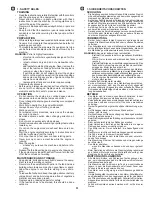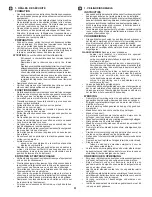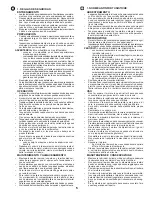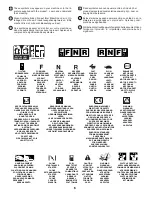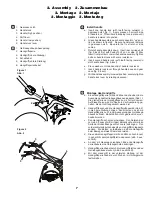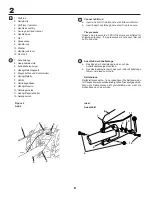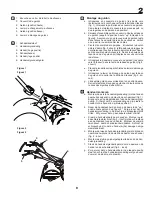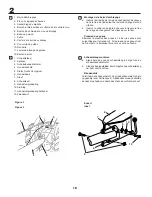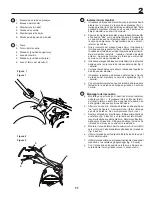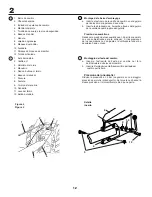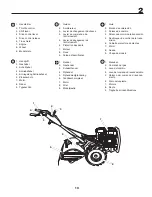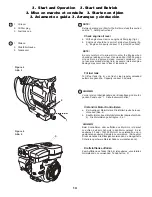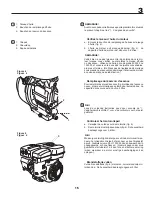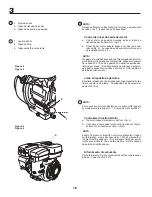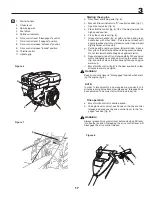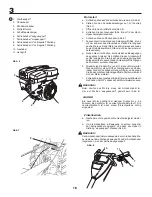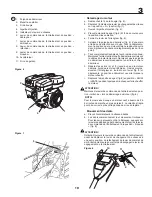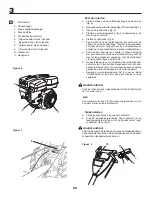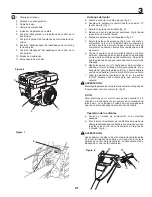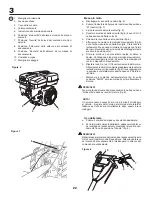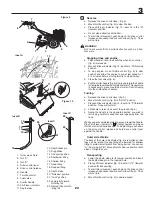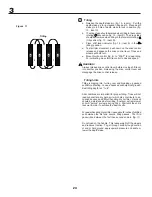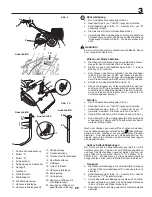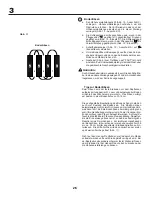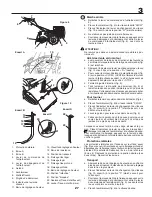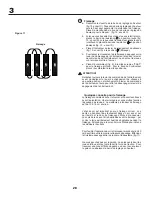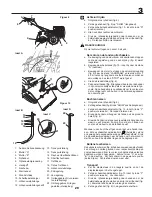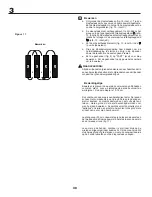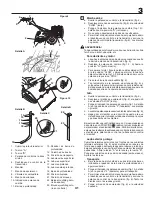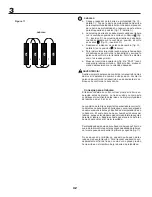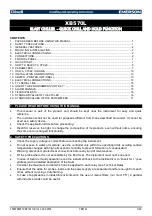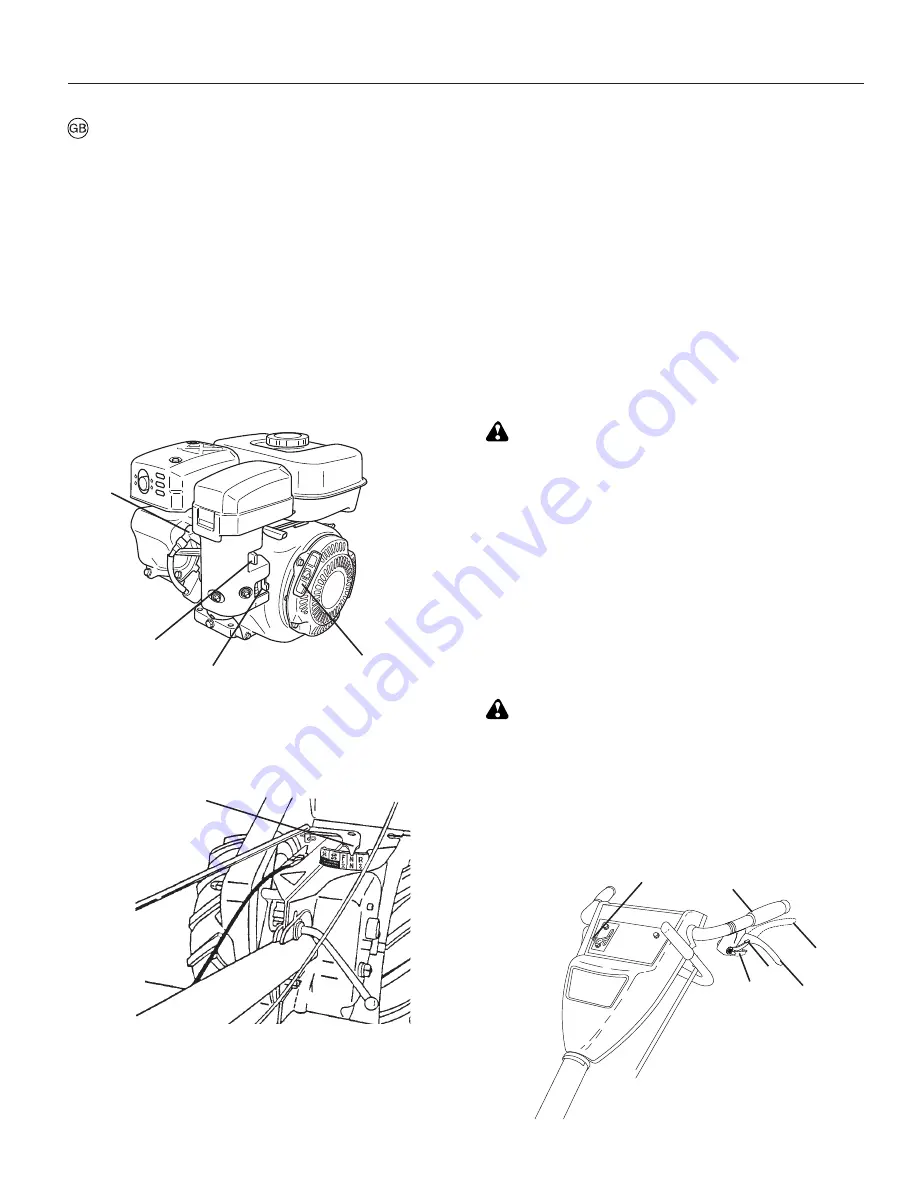
17
3
1. Starter
handle
2. Choke lever
3. Spark plug wire
4. Fuel Valve
5. Shift lever indicator
6. Drive control lever "disengaged" po si tion
7. Drive control lever "engaged" position
8. Drive control release "unlocked" po si tion
9. Drive control release "locked" position
10. Throttle control
11. Handle grip
Starting the engine
a. Reconnect spark plug wire (fig. 6).
b. Move shift lever indicator to "N" (neutral) position (fig. 7).
c. Open the fuel valve (fig. 6).
d. Place throttle control (fig. 8) 1/3 of the way towards the
high speed position.
e. Close the choke lever (fig. 6).
f. Grasp starter handle (fig. 6) with one hand and grasp
handle bar with other hand. Pull rope out slowly until
engine reaches start of compression cycle (rope will pull
slightly harder at this point).
g. Pull rope with a rapid, continous, full arm stroke. Keep a
firm grip on the starter handle and let rope rewind slowly.
Do not let starter handle snap back against starter.
h. Repeat steps (e.) and (f.) until engine starts. When engine
starts. Gradually open choke by turning the choke lever
(fig. 6) and then move to fully opened position as engine
warms up.
i. Move throttle control (fig. 8) to the slow position for a few
minutes to warm up engine.
WARNING!
Keep drive control lever in "disengaged" position when start-
ing the engine (fig. 8).
NOTE!
In order to idle smoothly, a new engine may require 3 to 5
minutes running time above slow idle speed. Idle speed has
been adjusted to be correct after this break-in period.
Tine operation
a. Move throttle control to desired speed.
b. To begin tine movement, push down on the drive control
release and squeeze the drive control lever to the "en-
gaged" position (fig. 8).
WARNING!
Always release drive control lever before moving shift lever
into another position. Releasing the drive control lever will
disengage the drive control release.
Figure 6
Figure 7
Figure 8
1
2
4
3
9
10
11
8
7
6
5

